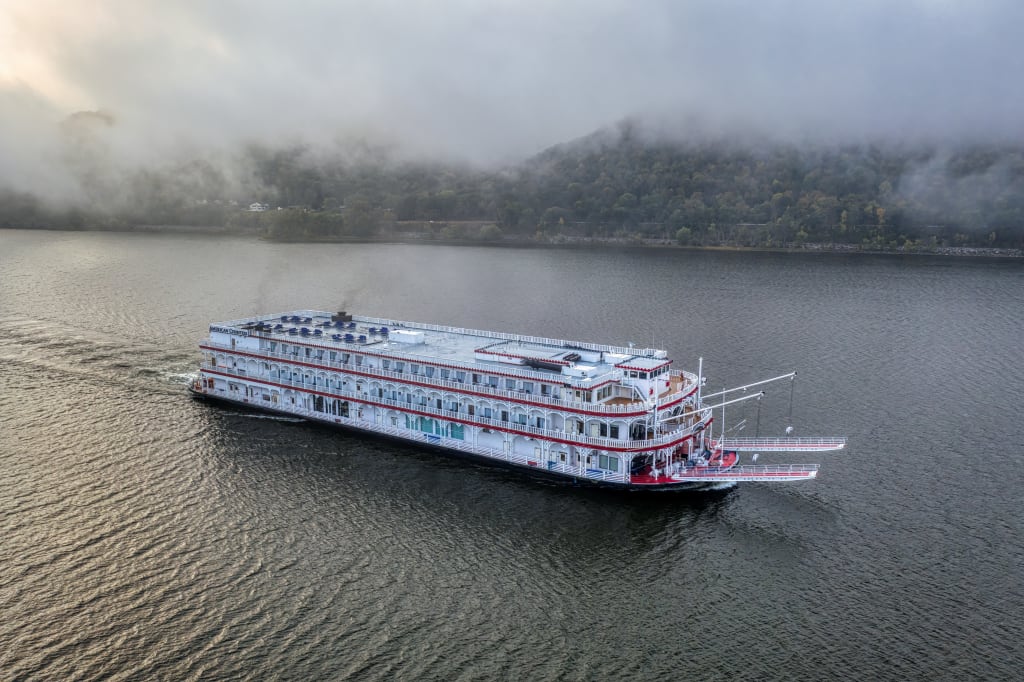The Titanic's Forgotten Sister
The Sultana Conspiracy: Was Foul Play Involved in the Tragic Explosion?

The night of April 27, 1865, was a dark and foggy one on the Mississippi River. The steamboat Sultana was chugging up the river, carrying over 2,400 passengers, mostly Union soldiers who had just been released from Confederate prison camps. They were eager to go back home to their families and loved ones after years of brutal fighting.
The Sultana was a small and nondescript steamboat, built to carry only 376 passengers. However, due to corruption and greed, it was dangerously overloaded with men. The captain, J. Cass Mason, was aware of the overcrowding but turned a blind eye to it, driven by the promise of a $5 bonus for every enlisted man he carried.
As the ship sailed up the river, the boiler pressure began to rise dangerously. The crew tried to relieve the pressure, but to no avail. Suddenly, at around 2 a.m., disaster struck. One of the boilers exploded, causing a chain reaction that ignited the other boilers and engulfed the ship in flames.
The explosion was so loud that it woke up the nearby town of Memphis. The Sultana, already top-heavy and overcrowded, quickly tilted and capsized, throwing passengers and crew into the icy water.
The scene was chaotic and horrific. Men struggled to stay afloat in the swift current, but many succumbed to hypothermia or drowned. The screams of the injured and dying echoed across the river. The rescue efforts were slow and disorganized, with many of the rescuers being former Confederate soldiers who were hesitant to help their former enemies.
As dawn broke, the extent of the tragedy became apparent. Bodies washed up on the riverbanks for miles downstream. The death toll was staggering, with estimates ranging from 1,500 to 1,800, making it one of the deadliest maritime disasters in U.S. history.
Despite the magnitude of the tragedy, the sinking of the Sultana is not as well-known as the sinking of the Titanic, which happened almost 50 years later. There are a few reasons for this. First, the Titanic was a more luxurious and glamorous ship, with wealthy and famous passengers on board. The media coverage and sensationalism surrounding the disaster made it a major news event at the time, and the subsequent movies, books, and documentaries have kept it in the public eye.
In contrast, the Sultana was a small, nondescript steamboat, and the majority of its passengers were poor soldiers who had just been released from prison camps. There was little media coverage of the disaster at the time, and it was overshadowed by the end of the Civil War and the assassination of President Lincoln just weeks earlier.
Another factor that contributed to the Sultana's obscurity was the controversy surrounding the cause of the disaster. While the boiler explosion was the immediate cause, there were suspicions of sabotage or incompetence on the part of the ship's owners and crew. However, the government investigation that followed focused more on the overcrowding issue than on any potential wrongdoing, and no one was ever held accountable.
The sinking of the Sultana is a tragic and overlooked chapter in American history, overshadowed by the more famous and sensationalized Titanic disaster. It serves as a reminder of the dangers of greed and corruption, and the importance of prioritizing safety over profit. The Sultana disaster also highlights the resilience and bravery of the soldiers who fought in the Civil War, even in the face of tragedy and hardship. Their sacrifices and heroism will always be remembered.





Comments
There are no comments for this story
Be the first to respond and start the conversation.